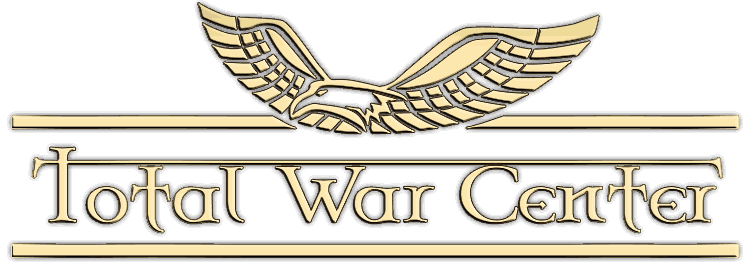Or 'Reasons to Ditch Sola Scriptura and Become Orthodox'
This is a long post, but a worthwhile discussion. So don't be afraid - give it a read-through! If you like, the conclusion is marked out at the bottom, so you can read that first. Please excuse the narcissistic subtitle.
What are you talking about?
By the phrase 'Protestant Problem' I am not, in fact, accusing Protestants of being troublemakers or any such thing. Actually, I'm referring to an undeniable intellectual problem that arises from the nature of Protestantism itself. That is to say, there are so many different versions of it! In fact, there are over thirty thousand, I believe. Now many of these are pretty much the same, but having said that there are still many disputes, both great and small. What is particularly suprising about this issue is that most of these sects will refer to the Bible as the source and authority for their doctrines, using it to 'prove' (for example) that man's life is entirely predestined, or alternatively that man has complete free will. This is summarised in an excellent metaphor that I once read:
Imagine a jug of clear, uncontaminated water. It is poured into five glasses, but in each glass the water appears to be of a different hue, or a different darkness. How can this be?
To a non-Christian, one explanation would no doubt be that the Bible had no internal coherence and so could be used to produce so many different interpretations. But I am a Christian, and besides, the argument that the Bible is incoherent is basically flawed and untenable. The men who wrote and later established the Biblical canon did actually realise what they were doing and did have a specific purpose. In fact, when you consider that debates over the meaning of Holy Scripture didn't really surface until the 1500s or thereabout (and also the fact that it was entirely focused around North-Western Europe), it becomes clear that this is a cultural issue, based on an intellectual paradigm. In other words, Protestants began to think about the Bible in a different way - this was the rise of sola scriptura and the needless stigmatism of the past.
So what? Where's the problem?
Well unfortunately, religious divides among Protestants (not to mention Protestants and Roman Catholics) have at times been used as excuses for politically-inspired violence. What is more is that the concept of 'The Church' is extremely important within Christianity. In fact, this is one point of the Bible that must be clear to any Christian:
I, therefore, the prisoner in the Lord, beseech you... to keep the unity of the Spirit in the bond of peace. There is one body, and one Spirit, even as you also were called in one hope of your calling; one Lord, one faith, one baptism; one God and Father of all, Who is over all, and through all, and in you all.
Ephesians 1:4-6
...if I am delayed, you will know how people ought to conduct themselves in God's household, which is the Church of the living God, the pillar and foundation of the truth.
1 Timothy 3:15
And God placed all things under his [Christ's] feet and appointed him to be head over everything for the Church, which is his body, the fullness of him who fills everything in every way.
Ephesians 1:22-23
Keep watch over yourselves and all the flock of which the Holy Spirit has made you bishops. Be shepherds of the Church of God, which he bought with his own blood.
Acts 20:28
Christ has only one body, there is only one truth, and at first, there was only one collective of bishops. Clearly the Church cannot uphold the truth if it is composed of bickering splinter groups - this is the Protestant Problem.
Were debates over Scripture really a novel thing?
Well to be honest, no. However, divisions over Scripture were a novel thing. There was debate even in the time of the Apostles (see Acts 15), however the interesting thing is that, over time, they resolved the debate. Even when the Roman Catholics split off from the Orthodox it was not caused by a debate over the Bible. So how is it that the Christian world went 1,500 years without major divisions over Scriptural interpretation?
Some of our earliest Christian texts (aside from Holy Scripture) actually provide the answer. St Irenaeus was a disciple of St Polycarp, who was himself a disciple of the Apostle John (who obviously knew Christ himself quite well), and he had the following to say:
Such, then, is their system, which neither the prophets announced, nor the Lord taught, nor the apostles delivered, but of which they boast that beyond all others they have a perfect knowledge... Their manner of acting is just as if one, when a beautiful image of a king has been constructed by some skillful artist out of precious jewels, should then take this likeness of the man all to pieces, should rearrange the gems, and so fit them together as to make them into the form of a dog or of a fox, and even that but poorly executed; and should then maintain and declare that this was the beautiful image of the king which the skillful artist constructed... and by thus exhibiting the jewels, should deceive the ignorant who had no conception what a king's form was like, and persuade them that that miserable likeness of the fox was, in fact, the beautiful image of the king.
St Irenaeus, 'Against All Heresies', VI.8
He might almost be talking about today's Protestants, yet he was writing in the second century AD!
Tertullian, perhaps the most important theologian of the second century, gives a solution:
Our appeal, therefore, must not be made to the Scriptures; nor must controversy be admitted on points in which victory will either be impossible, or uncertain, or not certain enough. But even if a discussion from the Scriptures should not turn out in such a way as to place both sides on a par, the natural order of things would require that this point should be first proposed, which is now the only one which we must discuss: "With whom lies that very faith to which the Scriptures belong? From what and through whom, and when, and to whom, has been handed down that rule, by which men become Christians?" For wherever it shall be manifest that the true Christian rule and faith shall be, there will likewise be the true Scriptures and expositions thereof, and all the Christian traditions.
Tertullian, Prescription Against the Heretics XIX
Irenaeus adds this:
It is within the power of all, therefore, in every Church, who may wish to see the truth, to contemplate clearly the tradition of the apostles manifested throughout the whole world; and we are in a position to reckon up those who were by the apostles instituted bishops in the Churches, and [to demonstrate] the succession of these men to our own times; those who neither taught nor knew of anything like what these [heretics] rave about...
St Irenaeus, Op. Cit. III.3
Conclusion
What Irenaeus, Tertullian, and the many other Fathers of the Church were saying is this - Scripture can be misinterpreted, and in fact even those with the best possible intentions can get it wrong. It is my solid conviction that Protestants are some of the most devout Christians in the world (and they split off from the Roman Catholics for the right reasons), but they have taken the wrong approach, the wrong intellectual paradigm. They appeal to sola scriptura ('by Scripture alone') and positively reject any tradition whatsoever. Indeed 'tradition' is a pretty dirty word among Protestants.
But why should it be?
The Scriptures themselves are in fact a part, perhaps the foundation, of the Church's tradition (a term frequently used in the Bible itself). To the uninformed person, they can be interpreted in many ways, but the Apostles had known Christ and had learned directly from him - they knew the correct way to interpret the Scriptures, and as Irenaeus and Tertullian say, they taught the correct interpretations to their disciples, who taught them to their disciples, and so on. In fact, it was thanks to this Apostolic Tradition that the Biblical canon was arranged as it is today (after all, the Bible wasn't just faxed in from Heaven), and the Church is guardian of this tradition (see 1 Timothy 6:20-21).
So when pondering problems of faith, why should you keep trying to reinvent the wheel? The Living Tradition of the Church holds the answers, and let me tell you, the Apostolic Tradition isn't difficult to find.
That's why I'm Orthodox.










 Reply With Quote
Reply With Quote

























